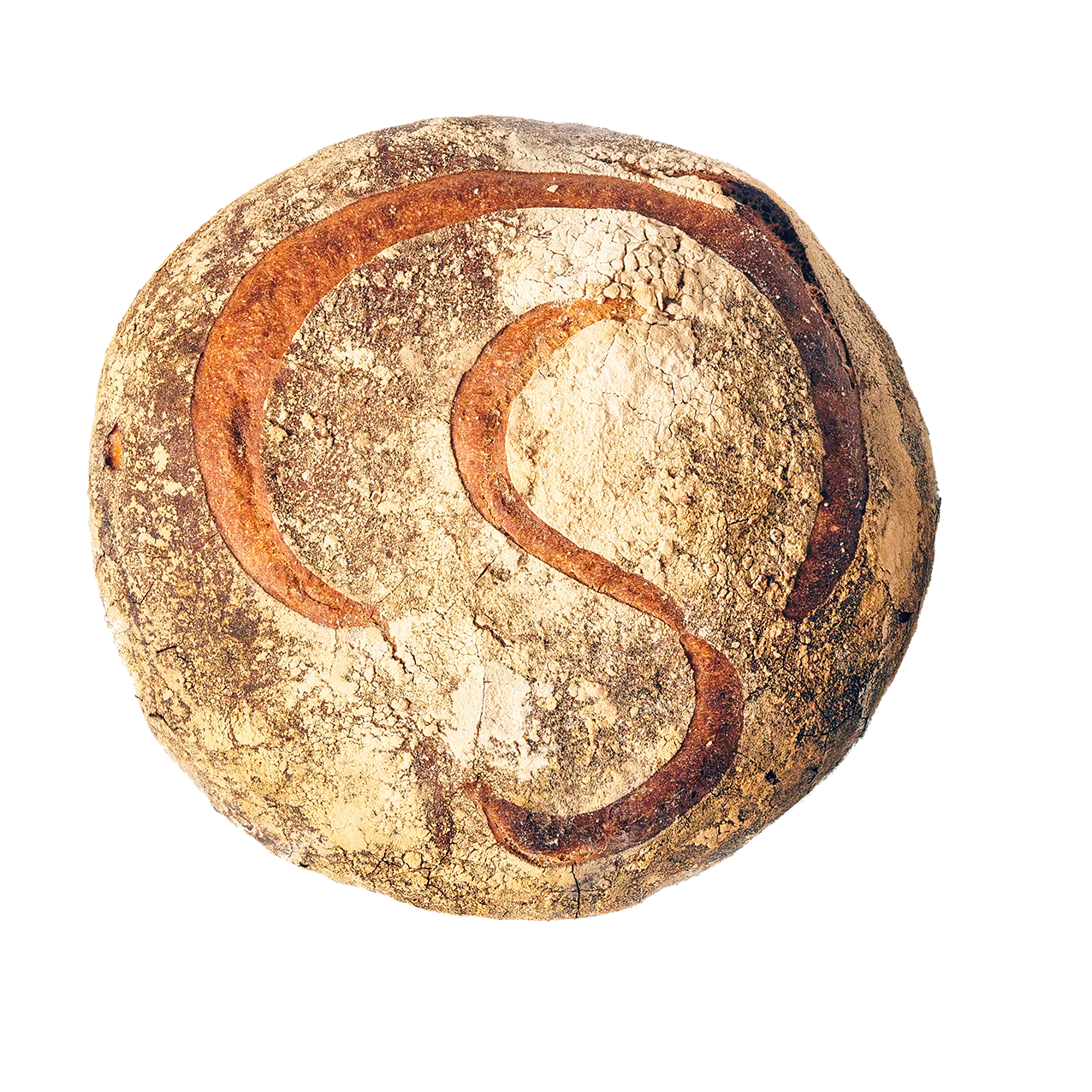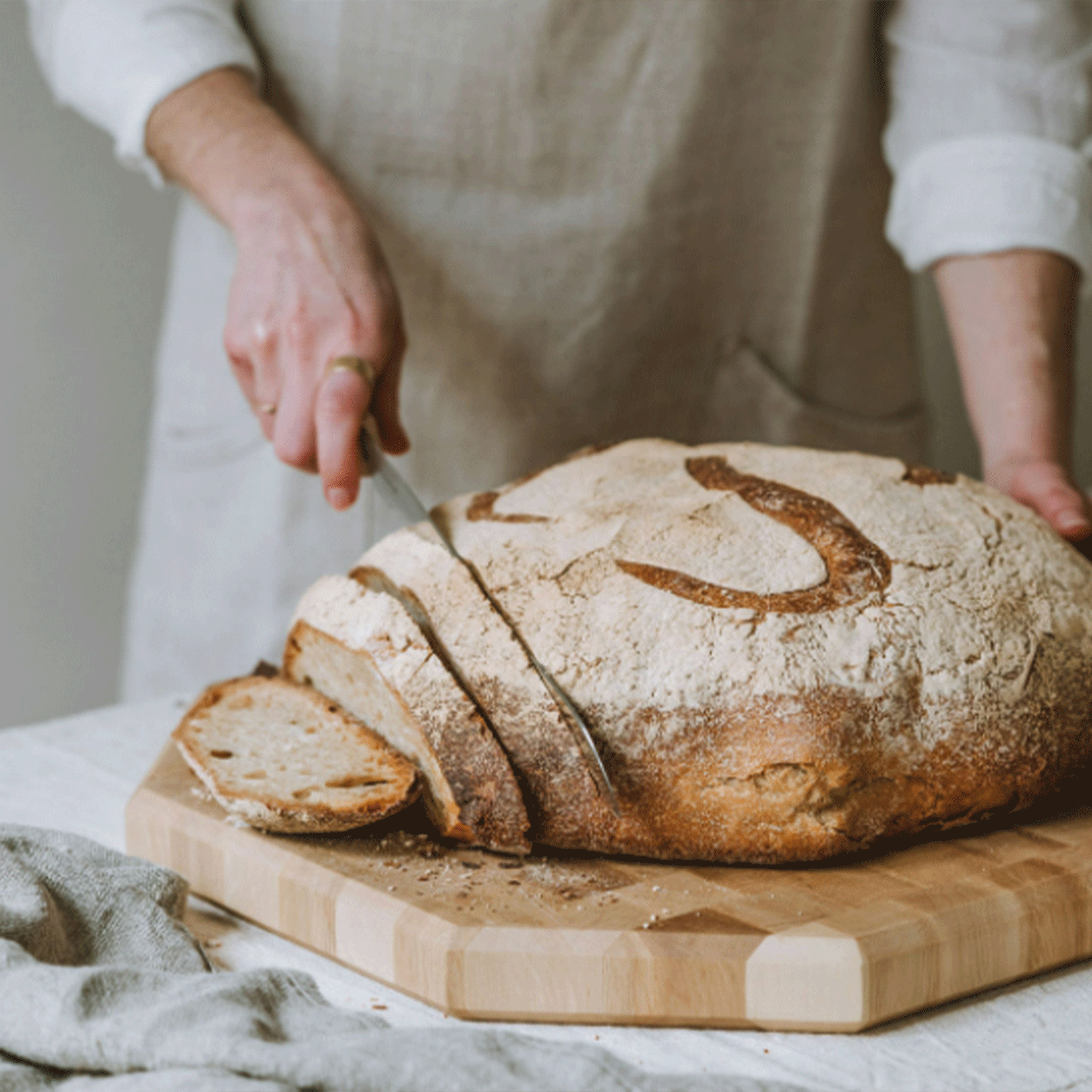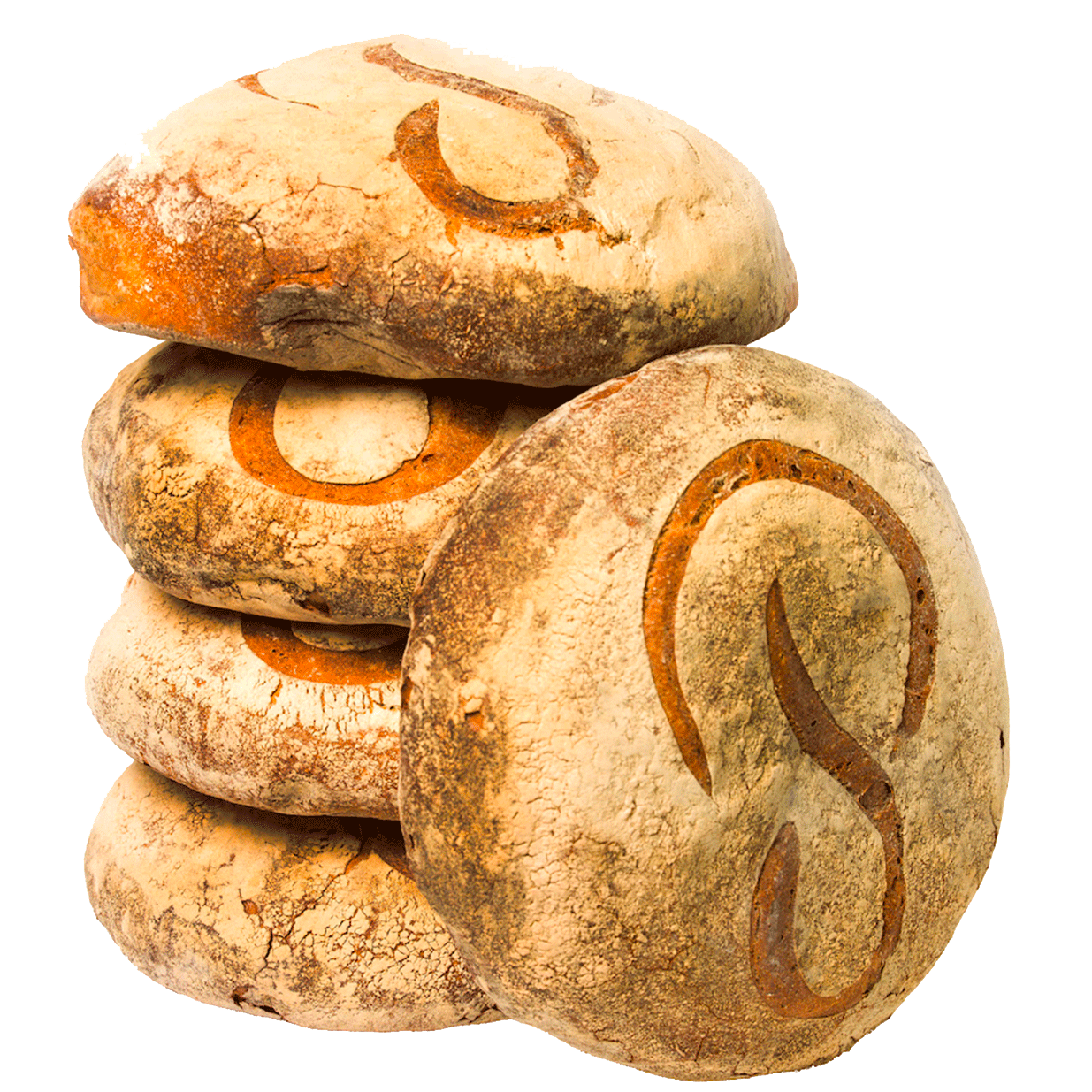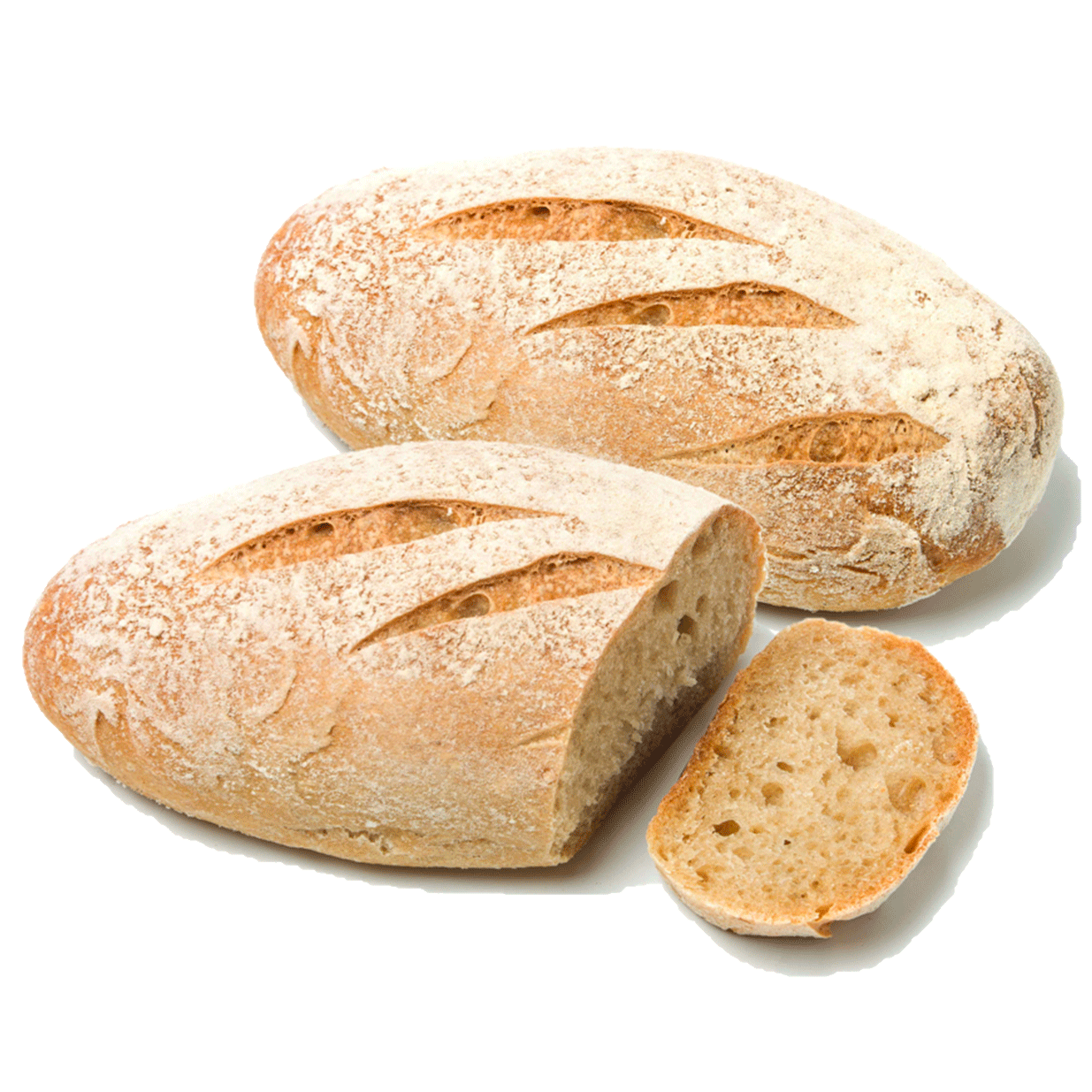-
POILÂNE® SOURDOUGH LOAF
-
-
THE POILÂNE® LOAF IS MADE OF 4 INGREDIENTS
Our signature bread keeps for about a week. Depending on your preference, you can eat the Poilâne® loaf fresh or toasted. Tip: toast only one side of the slice, the bread will be crispy on one side and soft on the other! At breakfast, we appreciate a lightly toasted slice of bread, with butter, honey or jam. The loaf accompanies the meal from the starter to the cheese, and even to the dessert as French toast; no way to lose a crumb! It can be used to make sandwiches and toast. Our sourdough bread loaf goes just as well with a simmered dish as with a terrine or a slice of smoked salmon, with savory or sweet dishes. A slice of sourdough bread, a little fresh butter, 2 squares of chocolate.
DID YOU KNOW THAT?
Sourdough bread is nourishing and keeps better. It is the type of bread that has fed people in Europe for centuries. The white bread baguette only appeared in the 19th century.
Natural sourdough fermentation gives it a slightly acidic flavor. This natural acidity stimulates the taste buds, and - in the same way as salt or pepper - enhances the taste of other ingredients, which can be better appreciated.
A sourdough bread keeps better than a yeast bread. The natural fermentation of sourdough also promotes better digestion. Indeed, during this fermentation, the bacteria will break down the starch, making it more digestible and will produce enzymes which carry out a "pre-digestion" of the gluten, making it more easily assimilable.
Sourdough rolls can be frozen. The freezer bags must be airtight and empty.












